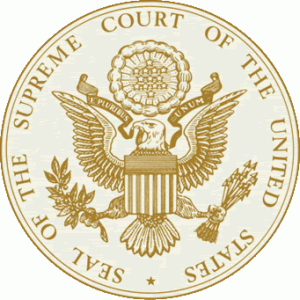 “It’s not journalism. It’s theater” Mike Daisey, writer who admitted to fabricating stories about oppressed workers at an APPLE contractor’s factory in China
“It’s not journalism. It’s theater” Mike Daisey, writer who admitted to fabricating stories about oppressed workers at an APPLE contractor’s factory in China
“Whoever learned to be anxious in the right way has learned the ultimate.” Soren Kierkegaard
“Destiny is not a matter of chance; it is a matter of choice. It is not a thing to be waited for; it is a thing to be achieved.” William Jennings Bryan
“Nothing is more responsible for the good old days than a bad memory.” Journalist Franklin Pierce Adams
“The only reason some people get lost in thought is because it’s unfamiliar territory.” Actor Paul Fix
“I cannot praise a fugitive or cloistered virtue, exercised and unbreathed, that never sallies out and sees her adversary.” John Milton
“There are no hopeless situations; there are only men who have grown helpless about them.” Clare Boothe Luce
“It is one of the most beautiful compensations of this life that no man can sincerely try to help another without helping himself.” Ralph Waldo Emerson
As the US SUPREME COURT is in session I have decided to put some of my favorite quotes from Justices. Sorry for the diversion.
It is confidence in the men and women who administer the judicial system
that is the true backbone of the rule of law. Time will one day heal the
wound to the confidence that will be inflicted by today’s decision. One
thing, however, is certain. Although we may never know with complete
certainty the identity of the winner of this year’s Presidential
election, the identity of the loser is perfectly clear. It is the
Nation’s confidence in the judge as an impartial guardian of the rule of
law. I respectfully dissent.
Justice John Paul Stevens 12-12-2000“It was not by accident or coincidence that the rights to freedom in
speech and press were coupled in a single guaranty with the rights of
the people peaceably to assemble and to petition for redress of
grievances. All these, though not identical, are inseparable.
They are cognate rights, and therefore
are united in the first Article’s assurance.”
Judge Wiley B. Rutledge
[Wiley Blount Rutledge] U.S. Supreme Court Justice
Source: Thomas v. Collins, 1944The mind of a bigot is like the pupil of the eye. The more light you shine
on it, the more it will contract.
Oliver Wendell Holmes Jr.“The very purpose of a Bill of Rights was to withdraw certain subjects
from the vicissitudes of political controversy, to place them beyond the
reach of majorities and officials and to establish them as legal
principles to be applied by the courts. One’s right to life, liberty,
and property, to free speech, a free press, freedom of worship and
assembly, and other fundamental rights may not be submitted to vote;
they depend on the outcome of no elections.”
Justice Robert H. Jackson“A nation’s success or failure in achieving democracy is judged in
part by how well it responds to those at the bottom and the margins
of the social order… The very problems that democratic change
brings — social tension, heightened expectations, political unrest
— are also strengths. Discord is a sign of progress afoot; unease
is an indication that a society has let go of what it knows and
is working out something better and new.”
Sandra Day O’Connor“The First Amendment has erected a wall between Church and State.
That wall must be kept high and impregnable.
We could not approve the slightest breach.”
Hugo L. Black
Everson V Board of Education 1947
“From the standpoint of freedom of speech and the press,
it is enough to point out that the state has no legitimate interest
in protecting any or all religions from views distasteful to them…
It is not the business of government to suppress
real or imagined attacks upon a particular religious doctrine.”
Tom C. Clark
Burstyn v. Wilson, 1952“The door of the Free Exercise Clause stands tightly closed against any
government regulation of religious beliefs as such. Government may neither
compel affirmation of a repugnant belief, nor penalize or discriminate
against individuals or groups because they hold views abhorrent to the
authorities.”
William J. Brennan
Sherbert v. Verner, 1963





